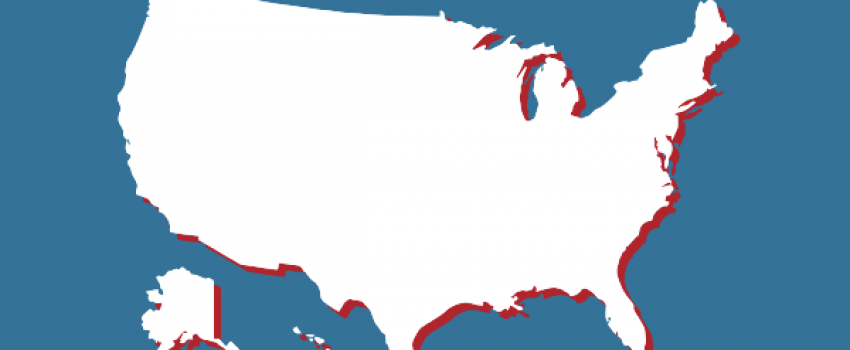The coronavirus (COVID-19) outbreak is continuing to cause widespread public concern and economic impacts for individuals and businesses across the globe.
Mortgage lenders in particular have been greatly impacted due to increased demand in mortgage loan refinancing, record-low interest rates, and unexpected layoffs and unemployment for borrowers. Mortgage refinances currently make up 75% of all mortgage applications. These refinancings are taking place against a backdrop of lenders moving to telework, being short-staffed, and having to cross-train employees from other parts of the business to help process backlogs.
As economic circumstances of many borrowers in the midst of refinancing change in real time, lenders must work hard to understand those shifting dynamics. For lenders already servicing loans of such borrowers, helping distressed borrowers access the servicing team to better understand forbearance and other loss mitigation options will be important. Beyond those challenges, lenders will need to address borrower concerns about their applications. Non-bank lenders are also seeking appraisal waivers and assurances that gap insurance meets lien requirements if there are delays in recording titles and mortgage notes.
Mortgage Servicers Under Strain
Servicers face many issues arising from borrower financial and public health uncertainty. Borrowers have questions about loan payments, forbearance programs, and loss mitigation options. As with lenders, servicers are experiencing this wave of borrower inquires at a time when operations remain short-staffed and under the constraints of social distancing and telework.
The borrower relief provided by the government will greatly exacerbate the financial strain mortgage servicers face. When a mortgage servicer receives payment, it passes that payment onto investors who own these loans in mortgage-backed securities. Servicers are required to pay their investors, even if borrowers do not pay. Normally, mortgage servicers have cash reserves to cover a few missed payments, but the mortgage industry as a whole is now facing the likely probability of an unprecedented number of missed mortgage payments. Given the swiftness with which the effects of COVID-19 have been felt across the economy, mortgage servicers may find themselves needing their own government relief. Unlike banks that have access to federal liquidity facilities, nonbank mortgage servicers (now 50% of the servicing market) rely on financing from commercial banks and private firms. In response, industry representatives and lawmakers are making calls for the Federal Reserve and Treasury Department to establish a credit facility for servicers.
Proactive Risk Mitigation for Mortgage Lenders and Servicers
Amid concerns around COVID-19, mortgage lenders and servicers are monitoring the latest reports from the Center for Disease Control (CDC) and are taking a number of precautionary measures for the health and safety of their employees and to minimize any impacts to the services they provide their customers. However, many servicers are recognizing that while they might have been prepared for natural disasters or cyberattacks, addressing the difficulties associated with a pandemic like COVID-19 places unforeseen constraints on their business operations.
Additional proactive risk mitigation strategies for lenders
Be transparent
Tell borrowers how you are ensuring timely handling of applications. Borrowers should know the status of their application, their point of contact, and how COVID-19 is impacting your business.
Clarify approval criteria
With inquiries at all-time highs given mortgage rates and economic circumstances, mortgage lenders should revise or create guidance to customers on what is required for a loan approval.
Provide digital service
Under present circumstances, alternative service options should be available, presented up front, and be clear to applicants.
Develop procedures to address changes during the loan process
Given that workers in hard hit sectors like hospitality may have suffered job losses, reduced income, or credit impairment, create and uniformly apply procedures for how such developments will impact loan approval or closure.
Maintain fair and consistent advertising
Any advertisements during this time should be calculated to be fair, clear, and with any disclaimers prominent.
Additional proactive risk mitigation strategies for servicers
Identify at-risk borrowers
What does your data tell you about which borrowers will need the most help? Which borrowers flag for occupational risk? What do your models tell you about which borrowers presented the greatest credit risk in the first place? Look to see which geographies COVID-19 is impacting. Otherwise high-risk borrowers in the path of the virus are at greatest risk.
Plan your communications with impacted borrowers
Once you know which borrowers are most at risk, develop an omni-channel plan for outreach to them that is consistent in approach, legal soundness, and application.
Develop an approach to assist impacted borrowers
Form procedures now on what you will do when payments are late or missed, the duration you will suspend credit reporting, and when loan modifications will be offered and how. If you are considering offering forbearances to your impacted borrowers, feel free to refer to our best practices guide on forbearances and add a forbearance request form to your website.
Establish uniform standards for loss mitigation options
Consult with outside counsel concerning what loss mitigation you offer, to whom, and how you will do so in a fair and consistent manner.
Ensure account status and bills are accurate
As people enter into forbearance programs, and pay in arrears, servicers should ensure their system information is accurate and billing statements presented clearly and understandably to borrowers.






